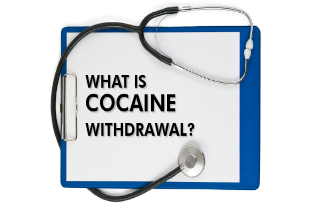Do you need cocaine to feel normal?
Then, you may be dependent and addicted to cocaine. Cocaine produces a sense of extreme joy and euphoria, causing an intense high. This high is caused by cocaine releasing an excess of the biochemical dopamine in your brain. When you begin to function normally while under the influence of cocaine, you will need cocaine in order to feel “normal”. This characterizes physical dependence on cocaine; your body will need the drug in order to function normally. But why does withdrawal occur? And do you need to get cocaine addiction help in order to withdraw from cocaine? We explore here.
What is cocaine withdrawal syndrome?
Once you have become dependent on cocaine, you will start to feel withdrawal symptoms after you stop using cocaine and will need to treat cocaine addiction if you want to stay stopped for good. If you have been using cocaine for an extended period of time, or have gone through binge use, you will experience some form of cocaine withdrawal syndrome when you lower doses or quit cocaine totally. The severity of cocaine withdrawal will depend on the length of use, and the amount ingested. But withdrawal can occur even after one use. In fact, following any use of cocaine, withdrawal symptoms may be present.
What is withdrawal from cocaine like?
Withdrawal from cocaine is more psychological than physical. Typically there is no presence of physical withdrawal symptoms, like nausea and shakiness. However, the psychological symptoms of cocaine withdrawal are very intense and severe. Cravings are the most severe psychological symptom of cocaine withdrawal. Other symptoms that you may experience while withdrawing from cocaine are:
- agitation and restlessness
- depressed mood
- fatigue
- generalized malaise
- increased appetite
- slowing of activity
- vivid and unpleasant dreams
What does cocaine withdrawal feel like?
Cocaine withdrawal feels like extreme hopeless, a feeling of desperation and fatigue. Cocaine withdrawal symptoms begin to present themselves almost immediately after the the effects of the drug wear off. The first symptom to appear is craving, which is sometimes the most difficult symptom for those choosing to withdraw from cocaine. Cravings can be intense and severe, and you should be prepared to resist use if you desire to continue withdrawal. Within a couple hours of the final use, other symptoms begin to appear and affect you psychologically. It is common that you will become agitated and restless within a few hours after you quit using cocaine.
Cocaine withdrawal symptoms usually peak 48-72 hours after your last use, and then begin to subside. It takes weeks for symptoms of cocaine withdrawal to fully disappear; however some symptoms may last for months. Depression and cravings are symptoms of cocaine withdrawal that can last months following initial withdrawal symptoms.
What helps cocaine withdrawal?
The main component of cocaine withdrawal is developing an extended period of abstinence from the drug. Unlike alcohol and opiate withdrawal, it is not necessary to aggressively treat cocaine withdrawal symptoms. Instead, the doctor or drug counselor overseeing detox will monitor you closely for signs of depression and even suicidal thoughts and behaviors. Still, treatments that help cocaine withdrawal include detox, prescription medications, and/or home remedies.
Detox – Detoxification from cocaine is the first step of cocaine withdrawal. The process of detoxification consists of three components: evaluation, stabilization and fostering entry into further treatment. A detox that does not include these three components is considered incomplete. There are several different choices for cocaine detox, including inpatient and outpatient facilities. The counselors and staff at detoxification facilities will take you through all the steps of a full detox, starting with evaluation, into stabilization and further treatment.
Home remedies – Because of the nature of cocaine withdrawal, home remedies for treatment are mildly unnecessary. As there aren’t typically physical signs of withdrawal, there are no home remedies necessary to deal with those symptoms except for rest. However, it is important to address the emotional and psychological signs of withdrawal, even if you choose to detox from home. In order to address these symptoms, you can seek help through groups like Narcotics Anonymous, Cocaine Anonymous or SMART recovery.
Medications – At this time there has been no medication produced to assist with cocaine withdrawal symptoms. However, you may benefit from a prescription for anti-depressants or anti-anxiety medications. some people have tried to use sedatives or alcohol to assist through withdrawal. Using any addictive substance is not a good idea, as it presents the possibility for further complications, or simply transferring dependence to another substance. The best way to help cocaine withdrawal is complete abstinence.
Questions about cocaine withdrawal
Are you or someone you know going through cocaine withdrawal and seeking more information about treatment and withdrawal? Do you have experience or expertise to share on the subject of cocaine withdrawal? Please leave us a comment with your questions or concerns and we will respond personally and promptly.









Related Posts